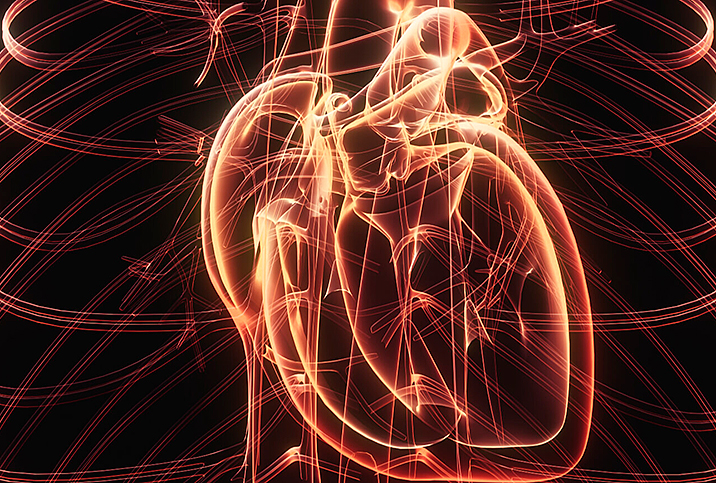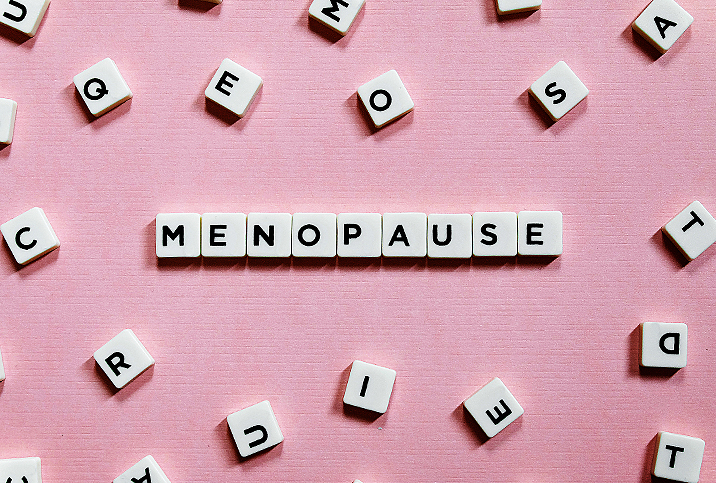Heart Disease After Menopause Is Common but Not Inevitable

When Wendy Wolfson experienced vomiting and weakness, she was initially unaware that her heart was causing the problem.
"I felt wretched, but the thing that made me understand that there was something really, really wrong was this feeling of my heart flopping in my chest," Wolfson said. "I felt it move."
An electrocardiogram (EKG) in the emergency room showed that the 61-year-old was experiencing temporary heart failure.
"They thought I was having a heart attack at first," she said. "They kept me for the weekend for observation."
Wolfson, a communications professional in Irvine, California, has since recovered but admits she hasn't been the same since.
"That could have been just because I'm not in good physical shape," she added. "I'm not exercising the way I used to or I might have just gotten older and been too sedentary."
Wolfson is among the 70 percent of women who develop cardiovascular disease after menopause, according to the American Heart Association (AHA). Cardiovascular disease is the leading cause of death in women, yet only 56 percent of women are aware of this risk, according to a 2020 report published in Circulation.
The connection between menopause and heart disease
"Women seem to have a superpower before menopause in that most are relatively free of heart disease risks until they are postmenopausal," said Nanette F. Santoro, M.D., an OB-GYN, reproductive endocrinologist and professor at the University of Colorado School of Medicine. "This protection seems to be conferred by estrogen. After menopause, the low levels of estrogen seem to reduce cardio protection, and the protective effect of estrogen wanes with age."
Although heart disease isn't caused by menopause, the AHA asserts that certain risk factors increase a woman's chances of developing heart disease after menopause.
"The years leading up to menopause are really vital for getting checked for cardiac risk factors," said Janki B. Shah, M.D., a UCLA physician who is board-certified in cardiovascular diseases, echocardiography and nuclear cardiology.
High blood pressure is just one risk factor for cardiovascular issues.
"Risks of stroke and heart disease increase when blood pressure exceeds 120/80," Shah explained. "All women need to know their numbers, like blood pressure, cholesterol, sugar levels and their body mass index. All of those are risk factors for heart disease and stroke. If you have a family history of heart disease or you've been a smoker, you're definitely at a much higher risk."
Heart disease symptoms in women
Further, symptoms of heart disease greatly differ between men and women.
"Women may report jaw pain, nausea, even sweating as their only sign of a heart attack," Santoro said. "This is different from the classic presentation in men of left-sided chest pain that may radiate down the arm. Women should be aware that their initial symptoms may be subtle and may not look at all like the classic male heart attack."
Depression, autoimmune diseases and inflammation are bigger contributors to heart disease in women than they are in men.
"Women are also smaller than men, their blood vessels are smaller and they are harder to treat with revascularization procedures compared to men," Santoro said. "This makes heart disease more challenging to manage in women."
Managing your risk
To protect their hearts as they age, women should exercise 150 minutes a week and follow a Mediterranean diet of vegetables, fruits, whole grains, beans, nuts, seeds and olive oil, Shah recommended.
"Stress, anxiety and depression all increase your risk of cardiovascular disease, so find ways to foster connections with people and practice mindfulness," she said. "Look for gratitude in your day-to-day lives. Menopause is also a time at which a lot of women retire and where there's a little bit more of a lack of purpose sometimes. So that's important to look out for. Take care of your psychological health."
Wolfson advised postmenopausal women who feel sick to go to the hospital right away.
"Don't try to tough it out, because if it had been a heart attack, I could have had lasting damage and I have two children," she added. "There wouldn't have been anything I could have done. I was really lucky."


















